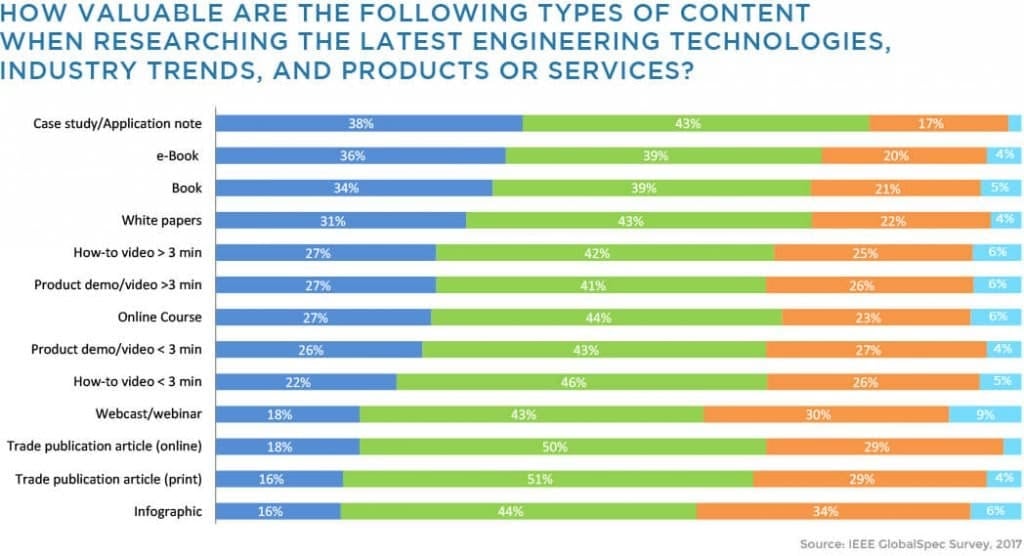
Marketing your technology-focused startup or small business can be difficult. In most industries and verticals, you almost immediately come up against a major competitor that has exponentially more resources to market its solution. How do you fight against such a significant advantage?
Simply building a better product is not enough. Any experienced tech marketer knows: perception is reality, which means you have to be effective in getting your software or hardware solution in front of your audience. That's where search engine optimization enters the equation.
Unless you're completely new to this competitive environment, you probably already know the basic outlines of SEO. Make sure your audience finds you through a Google or Bing search, and your business will begin to take off.
But success in this area is time-intensive, requiring both a long-term outlook and a comprehensive strategy. Is SEO worth it for your tech company? Here are 5 reasons the answer is a resounding yes.
1) Build a Competitive Web Presence
In one of the most capital-rich environments today, building a legitimate brand presence against larger competition can be difficult.
In fact, ads on Google and social media come with some of the highest cost-per-click rates across industries. For the big players, bidding on these types of keywords is a minor inconvenience. For their smaller competitors, that capital is simply not available.
Search engine optimization, on the other hand, allows you to build an online presence that is competitive without draining your budget.
If you strategically research relevant keywords, and build a consistent stream of content that highlight and broadcast these keywords, you can get your website in front of potential customers on the world's most trafficked websites.
2) Adjust to Changing Audience Preferences
In addition to its expensive nature, paid digital marketing also comes with other disadvantages. Chief among them is the fact that your audience simply doesn't want to see ads anymore. Mobile and desktop ad blocking plugins now reach more than 500 million combined devices around the globe.
What your audience wants, instead, is value. While they don't trust brands with obvious promotions, they do look for them to provide expertise in their industry.
A comprehensive SEO strategy allows you to build that expertise, helping you become a credible authority in your space. In other words, SEO allows you to build your marketing strategy to adjust to audience behaviors, instead of trying to bend them to your will.
3) Leverage Powerful Content
Speaking of value: search engine optimization is, above all, built on content. In fact, one of your core marketing goals should be to provide as much value as possible through blog posts and longer written pieces.
In today's digital environment, content is power. Marketers who effectively leverage it produce 7.8 percent faster growth in web traffic compared to those who don't. That type of success, of course, is only possible if you write only content based on keywords and topics your audience actually wants to read.
First, that means differentiation. Instead of writing blog posts on topics that have already been discussed extensively, find your niche and showcase your expertise within that niche.
It also makes sense to walk the fine line between value and promotion: stay relevant to your product's core competency and benefit, without simply writing a long-form ad about it.
4) Understand and Take Advantage of Buyer Intent
Done right, SEO can do more than just raise your profile and establish you as a thought leader in the tech space. The same concept can also help you better understand your audience, particularly as it relates to buyer intent.
From keyword research to web analytics, a better understanding of your audience can drive both your marketing success and your business growth.
For instance, you may find certain long-term keywords bringing in more traffic than others, based on their relevance within different stages of your sales funnel. Similarly, you may find that certain keyword-based content brings in not just more traffic, but also results in more micro and macro conversions.
Armed with this type of information, you can strategically improve your digital presence over time. Find the best-performing keywords.
Understand the types of content your audience wants to read before becoming a customer. Leverage your knowledge into marketing strategies that aim for conversions from the first touch.
5) Sustain Success in a Constantly Changing Environment
Finally, don't underestimate the potential of SEO to build sustainable success in an industry defined by constant change. Disruption is the name of the game in tech, and new marketing strategies constantly pop up to compete for your audience's attention.
But one thing remains true: your potential customers won't suddenly stop typing questions and phrases into Google.
As different social media networks rise and fall, while virtual reality is at once the future of digital marketing and doomed to fail, wouldn't it be nice to rely on a strategy you know will work well both now and in the future?
Here, the long-term approach of SEO actually works to its benefits. It's a lot easier to stomach investing your resources into a strategy you know will work to promote your tech business a year or two from today.
Building a strategy that touches on all of these potential benefits, of course, takes time and expertise. If you are starting out in your industry or have limited resources available for marketing your tech company, neither may be easily available. What do you do?
The best solution is seeking external help. Find an agency that has worked with clients in your industry, and understands the competitive and rapidly changing world of software and hardware.
In other words, contact us to start exploring a potential SEO and digital marketing partnership.












